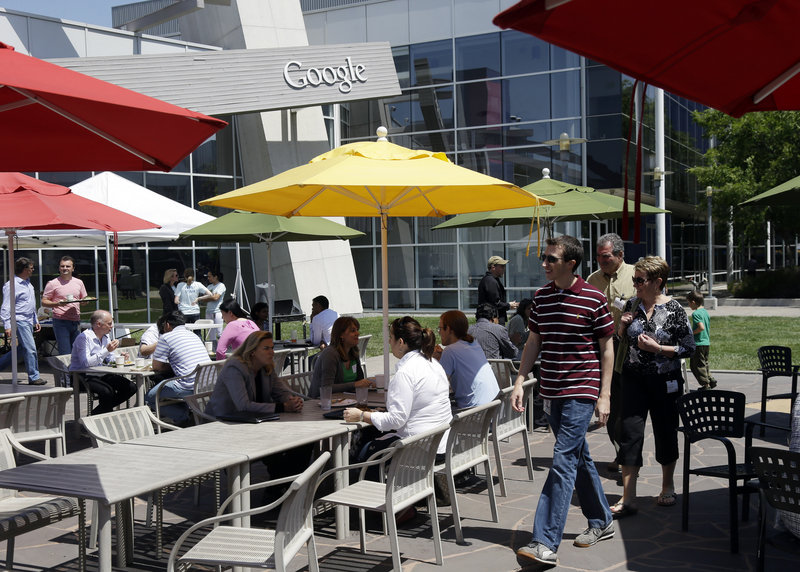BRUSSELS – Google has agreed to change how it displays search results in Europe — including a better labeling of its promoted content and displaying links to competitors — to appease concerns it might be abusing its dominant market position, the European Union’s antitrust body said Thursday.
Google’s search engine, which is the world’s most influential gateway to online information and commerce, enjoys a near-monopoly in Europe.
The EU Commission, which acts as the 27-nation bloc’s antitrust authority, has been investigating since 2010 whether the company is unfairly stifling competition. It pointed out several areas of concern that Google is now trying to address.
Google has offered to more clearly label search results stemming from its own services such as Google News, Google Maps or its shopping and flight search functions. That would allow users to distinguish between natural search results and those promoted by Google.
It also agreed to display some search results from its competitors and links to their services, the EU Commission said.
The Commission has often taken a harder line with U.S. tech companies than its American counterparts, the Federal Trade Commission and the Justice Department. Google, which is based in Mountain View, California, was able to settle a similar antitrust complaint on its search business with the FTC in January without making any major concessions on how it runs its search engine.
The EU Commission is now proposing a market test of the concessions for a month. That would give competitors the chance to say whether they deem them sufficient.
“The objective of this process is to try to see if we can achieve a settled outcome in this antitrust investigation,” said Commission spokesman Antoine Colombani.
A group of 17 companies competing with Google — including tech giants and Internet companies such as Microsoft, Nokia Expedia and TripAdvisor — vowed to carefully study Google’s proposed concessions.
“The most important remedy to Google’s abuse of dominance is to require the search monopoly … to subject its own products and services to the same policy it uses to rank and display all other websites,” said the group, collectively called FairSearch.
Once the Commission accepts the concessions — revised or not — they become legally binding for the company for the next five years. If the deal is accepted, Google would avoid a fine as well as a finding of wrongdoing.
If Google were then to break its commitments, the Commission could impose a fine of up to 10 percent of its annual worldwide revenue — that would be close to $5 billion in Google’s case.
The Commission said Google will “clearly separate promoted links from other web search results by clear graphical features” and “display links to three rival specialized search services close to its own services, in a place that is clearly visible to users.”
Google will also give all websites the option to keep their content from being used in Google’s specialized search services, “while ensuring that any opt-out does not unduly affect the ranking of those web sites in Google’s general web search results,” it said.
In addition, the proposed remedies will give newspaper publishers greater control over what appears in Google’s news aggregator, Google News.
To normal users in Europe, the changes in search results will only be visible once the Commission accepts the settlement, most likely later this year.
However, Google’s algorithm — the unique mathematical formula that ranks its search results — will remain unchanged. That means the company retains the power to decide what search results are displayed most prominently.
Send questions/comments to the editors.



Success. Please wait for the page to reload. If the page does not reload within 5 seconds, please refresh the page.
Enter your email and password to access comments.
Hi, to comment on stories you must . This profile is in addition to your subscription and website login.
Already have a commenting profile? .
Invalid username/password.
Please check your email to confirm and complete your registration.
Only subscribers are eligible to post comments. Please subscribe or login first for digital access. Here’s why.
Use the form below to reset your password. When you've submitted your account email, we will send an email with a reset code.